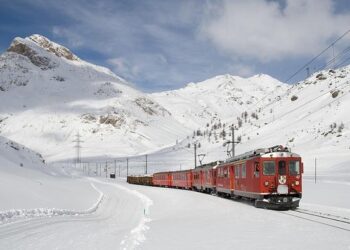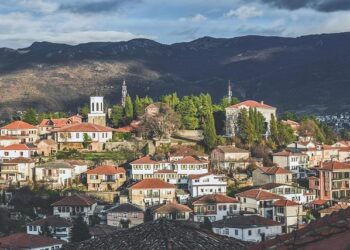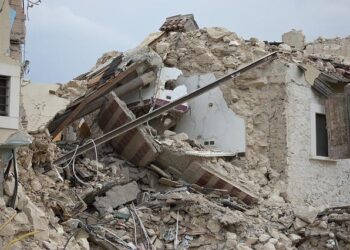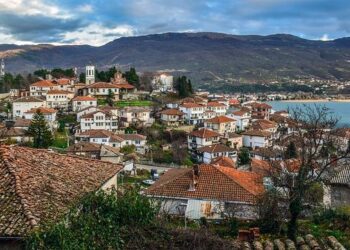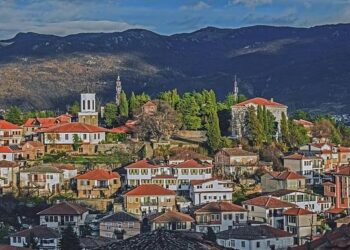A Bulgarian Member of the European Parliament has publicly rejected a recent European Parliament report that, according to Skopje’s authorities, acknowledges a “centuries-old Macedonian identity.” Speaking to Novinite.com, the MEP characterized these claims as “manipulative,” challenging the narrative promoted by North Macedonia. The dispute highlights ongoing tensions over historical and cultural interpretations in the Balkans ahead of the region’s broader integration efforts within the European Union.
Bulgarian MEP Challenges European Parliament Report on Macedonian Identity
Bulgarian Member of the European Parliament (MEP) Angel Dzhambazki has openly rejected the claims embedded in a recent European Parliament (EP) report that purportedly recognizes a “centuries-old Macedonian identity.” In a pointed statement, Dzhambazki accused Skopje of engaging in historical manipulation, asserting that the report undermines the shared cultural and historical ties between Bulgaria and North Macedonia. According to the MEP, the narrative promoted in the EP document disregards established historical facts and distorts the authentic ethnic and linguistic heritage of the region.
Dzhambazki emphasized several key points challenging the report’s validity:
- Lack of historical consensus: No credible evidence supports the existence of a distinct Macedonian identity dating back centuries, as claimed.
- Political motives: The report, he argues, is part of a broader political agenda rather than an objective historical evaluation.
- Bulgarian cultural heritage: He highlighted Bulgaria’s longstanding historical ties to the territory and people of North Macedonia, which are often overlooked.
| Aspect | Dzhambazki’s Position | EP Report Claim |
|---|---|---|
| Historical Identity | Shared Slavic roots with Bulgaria | Distinct Macedonian identity for centuries |
| Cultural Heritage | Integral to Bulgarian history | Separate and unique Macedonian tradition |
| Political Context | Report influenced by political agendas | Presented as neutral recognition |
Analyzing the Historical Dispute Between Bulgaria and North Macedonia
The dispute between Bulgaria and North Macedonia centers on divergent interpretations of historical identity and heritage, which have long complicated diplomatic relations. Bulgaria contests North Macedonia’s claim to a “centuries-old Macedonian identity,” arguing that the region’s historical narrative has been selectively rewritten to serve political ambitions. Bulgarian officials emphasize shared cultural roots and assert that many historical figures celebrated in North Macedonia are, in fact, part of a broader Bulgarian legacy. This conflict is not only about identity but also affects North Macedonia’s European Union accession prospects, as Bulgaria has wielded its position to demand historical and linguistic recognitions as preconditions for EU integration.
Key points fueling the divide include:
- Historical Figures: Disputed national affiliations of 19th and early 20th-century revolutionaries.
- Language Claims: Debates over whether the Macedonian language is a distinct entity or a Bulgarian dialect.
- EU Mediation: The role of European institutions in attempting to reconcile these narratives.
| Aspect | Bulgaria’s Position | North Macedonia’s Position |
|---|---|---|
| Historical Identity | Shared Slavic heritage, linked closely to Bulgarian history | Distinct Macedonian nation with a separate historical identity |
| Language | Considered a Bulgarian dialect | Recognized as an independent Slavic language |
| EU Accession | Demands recognition of historical and linguistic positions | Seeks EU progress without historical concessions |
Experts Call for Dialogue and Fact-Based Approach to Resolve Identity Claims
Leading experts emphasize the necessity of fostering open dialogue and grounding discussions in verified facts to address the sensitive issue of historical identities in the Balkans. They argue that politicized narratives and unilateral claims only deepen divisions and undermine efforts toward regional stability. Instead of amplifying nationalistic rhetoric, these experts advocate for collaborative research involving historians, linguists, and cultural scholars to create a shared understanding free from manipulation.
Among the proposed steps, specialists recommend:
- Independent fact-checking mechanisms to review historical and cultural assertions;
- Establishment of bilateral working groups to facilitate continuous engagement;
- Promotion of educational initiatives highlighting the complex mosaic of Balkan identities.
They caution that ignoring this measured approach risks prolonging conflict and cauterizing the path towards constructive European integration, urging political leaders to resist narratives that serve short-term national gain over long-term peace.
| Key Recommendation | Expected Outcome |
|---|---|
| Fact-Based Historical Review | Improved trust among communities |
| Cross-Border Dialogue Forums | Reduced political tensions |
| Joint Educational Programs | Strengthened cultural awareness |
In Retrospect
As the debate over the recognition of historical and national identities continues to unfold within the European Parliament, tensions between Bulgaria and North Macedonia remain palpable. The recent denial by the Bulgarian MEP highlights the deep-seated disputes that shape regional politics and diplomatic relations. Observers will be closely watching how both sides navigate these contentious claims in the coming weeks, as the issue remains a significant factor in North Macedonia’s EU accession process.



